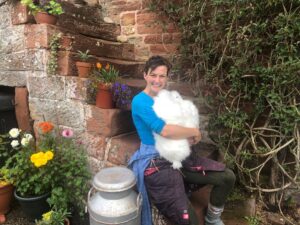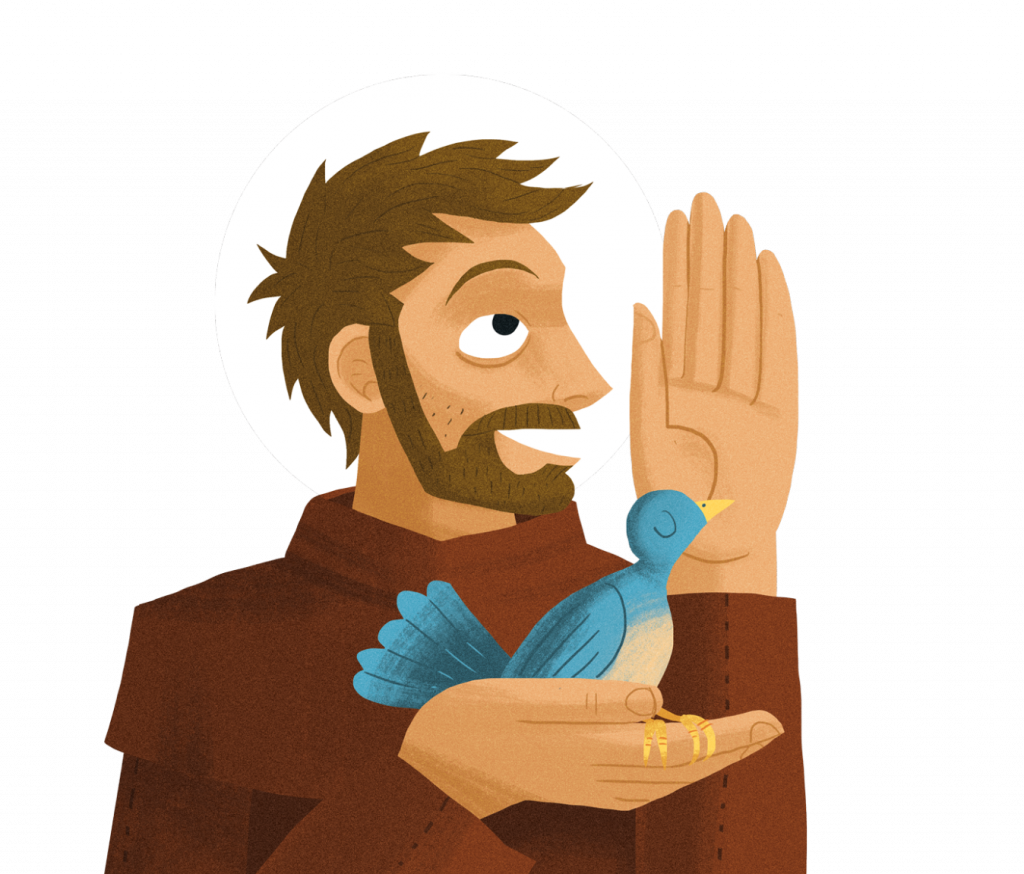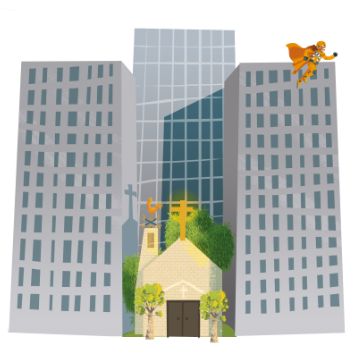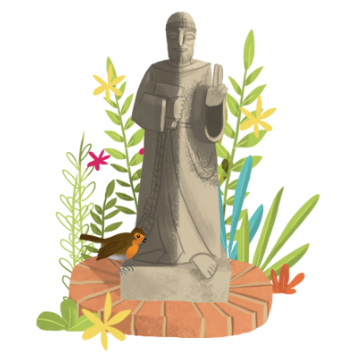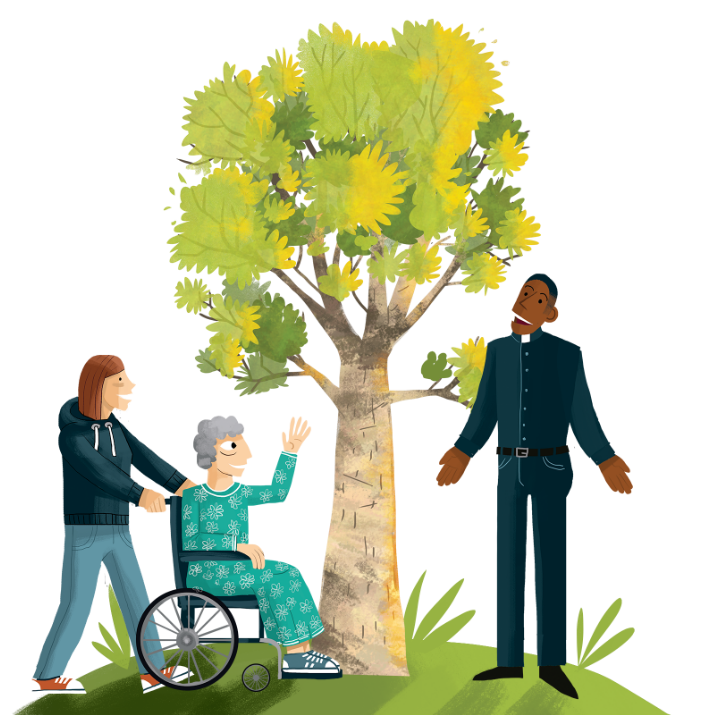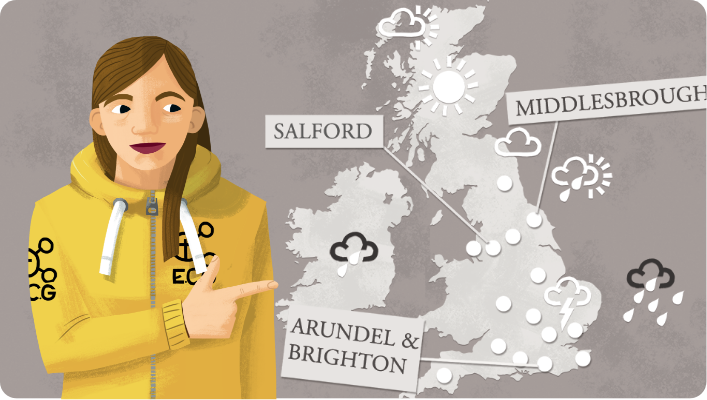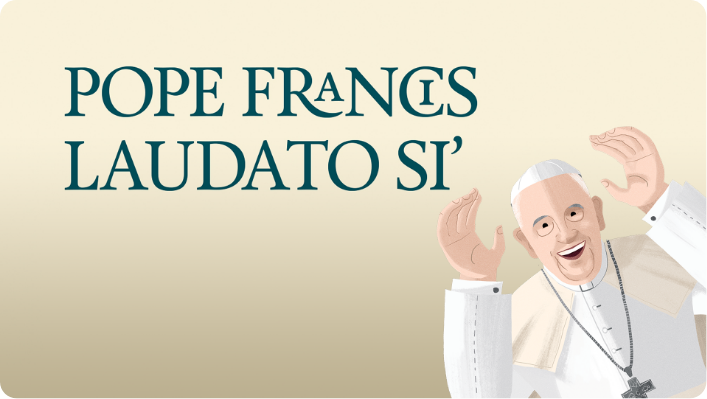
An introduction to appreciating nature

By Sr Shirley Aeria
We asked Sr Shirley to share some wisdom on why an appreciation of nature is deeply rooted in our faith.
NATURE IS A CONDUIT OF GOD’S LOVE
Nature, in all its limitless forms reflect a humble and extravagant God who cares deeply for all that has been created. Through our contemplative gaze, we can experience nature as an immense channel of God’s magnanimous love for each of us and for all of creation. In Matt 6:26, Jesus says, “Look at the birds, they do not plant seeds, gather a harvest… yet your Father in heaven takes care of them.”
In the great mystery of the Incarnation of God in Jesus (when God became man), the core message is that the Divine Presence is in us and in all of creation. The Incarnation has made every being and creation holy. There is an infinite self-emptying of God in creation and therefore, every aspect of creation has inherent dignity and deserves respect and appreciation.
WHAT HAPPENS WHEN WE STOP APPRECIATING NATURE?
Pope Francis in Laudato Si’ reminds us that all creation is interconnected. So, if one aspect of creation, whether it be humanity, animals, or landscapes, is damaged due to a lack of appreciation or care, we are all, directly or indirectly, affected. For example, losing habitats and homes due to climate change, pollution or mining can cause considerable suffering to both people and nature. In his Canticle of the Sun, St Francis of Assisi goes to great lengths to amplify the sisterly and brotherly relationships we have with ALL aspects of creation. Every person, flora, and fauna has a mission. Just because we haven’t found their respective purpose, does not mean that they are redundant! Our ecosystem relies heavily on relationships functioning well at all levels, as scientists have informed us. The importance of biodiversity goes beyond our dependence on ecosystems to live. All God’s creatures, from sister tree to brother fly, all have their own value and goodness. Every created thing, living or non-living, is here to give glory to God by their very existence on planet Earth, and the entire universe.

WHAT LEGACY SHOULD WE, AS CHRISTIANS, LEAVE FOR FUTURE GENERATIONS?
God has entrusted humanity with the responsibility of looking after the planet as we read in Genesis 1:26ff. The reality right now is rather different. We humans have contributed to the destruction of our planet. Failure to act on our part as Christians, would be both irresponsible and totally lacking in charity if we are to care for our brothers and sisters on planet earth.
“The work of the Church seeks not only to remind everyone of the duty to care for nature, but at the same time “she must above all protect mankind from self-destruction”.
St Pope John Paul II
WHAT ROLE DOES MY PARISH HAVE IN HELPING PEOPLE APPRECIATE AND CARE FOR CREATION?

Within the parish setting, if the leadership recognises the importance of creation, this attitude will more likely filter through the majority of parishioners. The physical space in the parish can encourage practical activities which involve the sharing of the gifts and skills of parishioners to work together to support our common home would, no doubt, inspire and encourage more people to engage with nature. The parish, by making their grounds beautiful and full of nature, can help parishioners and passers by experience of beauty in their everyday lives. The beauty of nature is real therapy for our soul. As many of us will agree, there are numerous health benefits to being in beautiful places such as reducing stress, increased positivity, increased focus, and even measurable physical health benefits.
Future generations would either thank us or rebuke us depending on the type of legacy we leave for them in terms of the care and sustainability of our planet. Appreciating nature will not only save our planet but ultimately, we will be saving human existence! What’s more we will be happier for being appreciative and grateful. We, therefore, have a moral obligation and personal incentive to appreciate, live simply, and ensure that we do all we can to preserve planet earth for future generations.
Shirley Aeria is a sister of the The Franciscan Missionaries of the Divine Motherhood, who proclaim with their lives the joy and freedom of the Gospel in the spirit of St Francis and St Clare of Assisi. Sr Shirley spends much of her time volunteering to help make her community a beautiful place full of nature. She does so with boundless enthusiasm.
Photos copyright John Paul de Quay and Eleanor Margetts

About the Author
Shirley Aeria is a sister of the The Franciscan Missionaries of the Divine Motherhood, who proclaim with their lives the joy and freedom of the Gospel in the spirit of St Francis and St Clare of Assisi. Sr Shirley spends much of her time volunteering to help make her community a beautiful place full of nature. She does so with boundless enthusiasm.











